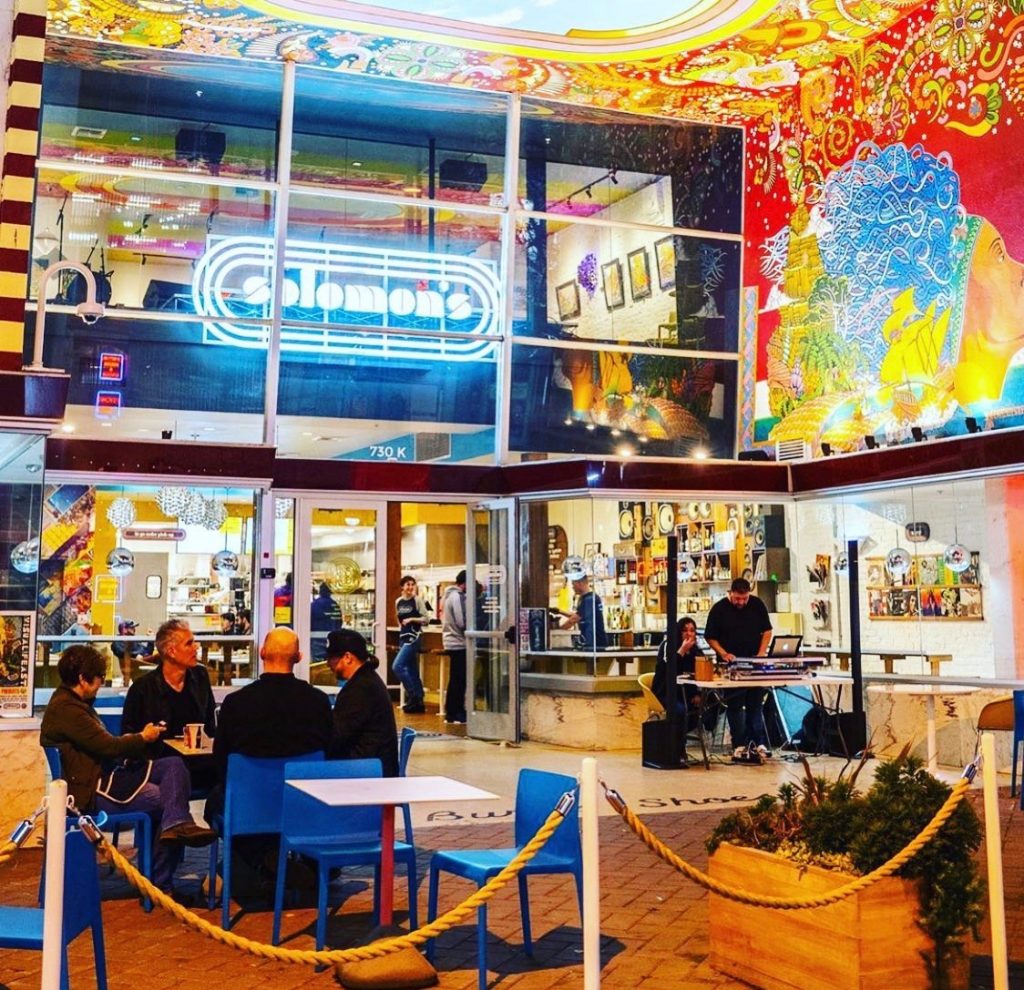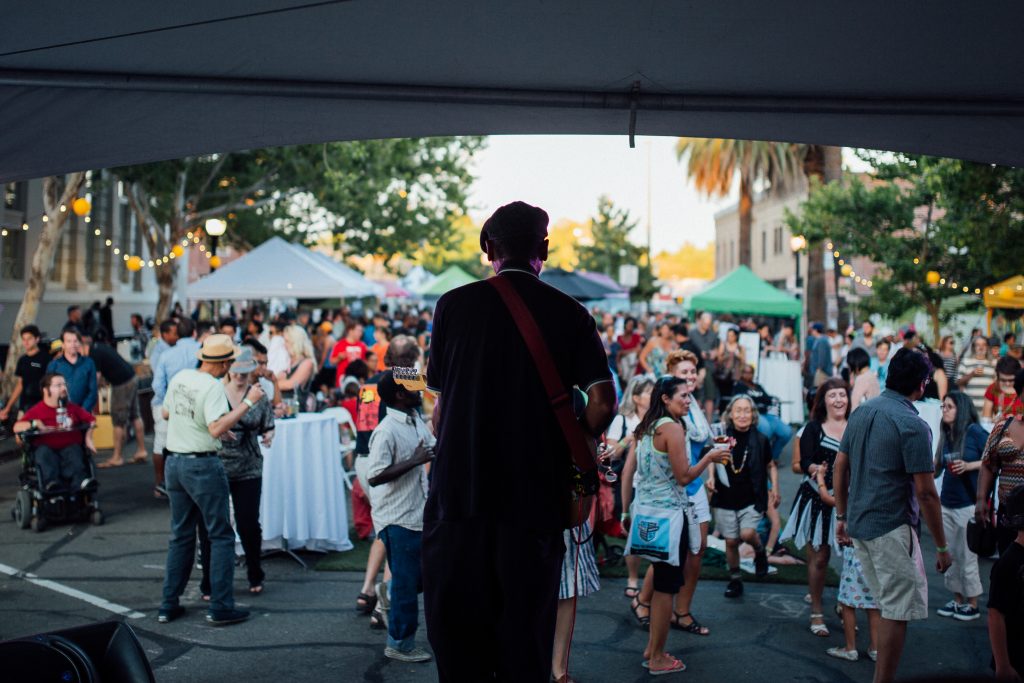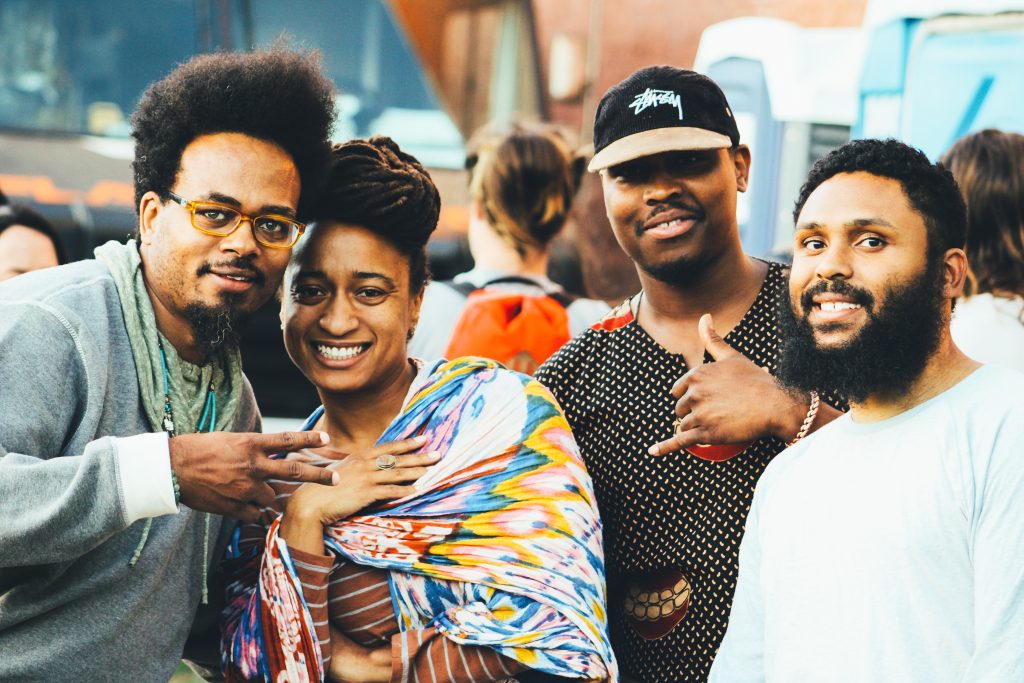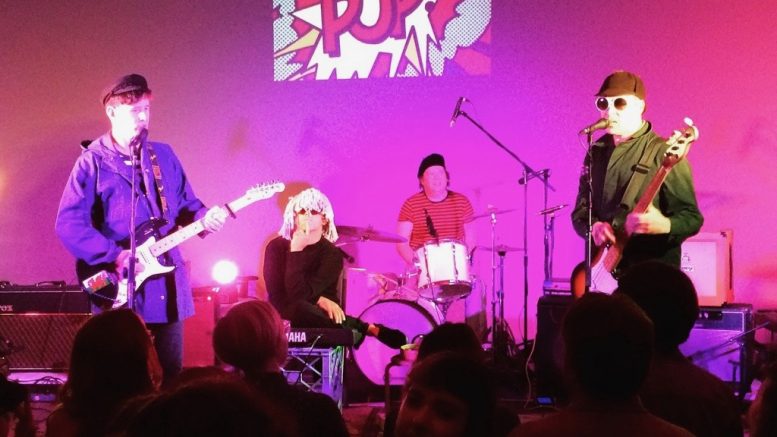Venue owners, promoters and performers see a chasm between leadership’s claims and city staff’s tactics, while talk of Sacramento being ‘the next Austin’ seems like a post-COVID pipe dream
By Scott Thomas Anderson
For Sacramento, March 20, 2020 wasn’t just the beginning of a health and economic nightmare, it was also – for quite a while – the “day that music died.”
Over the next 17 months, most of the Capital City’s live entertainment venues tried to claw back from the abyss. They’re still trying now. But will they succeed? The news last week that de Vere’s Irish Pub was a delayed casualty of California’s lockdowns sent waves of stress through the various musical acts that performed there. Locals are wondering just how many post-pandemic dominos that appeared to still be standing might now start to fall.
State authorities made sure that music, comedy and theater venues were the very last businesses to get to earn revenue again. In June, their owners were given a forecast of a vaccinated miracle comeback – the so-called “new roaring 20s” – only for the Delta variant to steer reality in a very different direction. That begs the question of how many more spaces that host music in Sacramento could go the way of de Vere’s – finding that the lockdowns turned out to be an irreversible blow.
Further worrying performers is a conviction that Sacramento City Hall has never been genuinely supportive of the musical landscape. Despite speeches and proclamations from elected officials, show-bookers and promoters tend to see a total disconnect between Sacramento’s arts-lauding leadership and its actual code enforcement and police officers. This perception was only magnified by the pandemic, after city officials scrambled to pause regulations so that restaurants could continue breathing, while entertainment-only venues were told to keep paying rent and holding their breath.
This indifference was so pronounced that Sacramento’s bars and night clubs were compelled to form their own coalition in a final effort to avoid going out of business.
Now, as players and promoters on the scene work to recover, they see few signs that Sacramento officials have a sense of urgency around helping them. The city’s code enforcement department doesn’t see it that way.
We want lively patios, except we don’t

Throughout every phase of the attempted re-opening, Sacramento’s downtown had it especially rough. The Golden 1 Center was long-dormant during the worst episodes, while the work-from-home mandate has kept the district lacking daytime customers, with only 18% of its professional offices believed to have employees occupying them at the moment.
Given how economically ravaged the neighborhood has been, the Downtown Partnership saw the summer as a chance to bring life back onto the streets through lively patio action. The organization encouraged businesses to “activate” their outdoor spaces with entertainment and activities, creating a general atmosphere that would attract more foot traffic, allowing people to have fun while feeling safer in the open air.
Andrea Lepore, who manages music at the Russ Room on K Street, says that most downtown staples were on-board with the idea, though city officials apparently didn’t get the memo. The Russ Room decided to go with a live D.J. on its outdoor patio. The evening was soon off to a great start. Lepore remembers glancing at the security cameras and seeing a group of Sacramentans gathering to enjoy the sounds. It was a relief that people were showing up. But those positive vibes didn’t last long. In no time Lepore got a call from her staff letting her know that Sacramento’s entertainment police had shown up. The officers announced that, while the Russ Room had a permit for live entertainment, it did not have the specific permit required to host D.J.s outside. Not only were the officers shutting down the little show, they were hitting the Russ Room with a fine.
“It was news to me, since we already have an entertainment permit,” Lepore recalled. “With everything going on, evenings and weekends are our opportunity to try to capture some revenue; and we’re doing everything we can to bring a positive environment downtown, while also doing it outside for safety reasons – and what we end up getting is a fine from code enforcement.”
Lepore added that the spirit of goodwill and encouragement the city showed to the nearby restaurants with the Al Fresca initiative, or makeshift outdoor dining program, was nowhere to be seen for the Russ Room as it was trying to pull through.
“Instead of fining businesses, I think they should be making the businesses aware of the minutia,” Lepore stressed. “That would be more helpful than costing them money through fines and threatening to shut them down.”
Julia Heath, director of operations at Harlow’s, believes the city’s leaders and staff never prioritized entertainment venues during the height of COVID, many of which had to keep paying rent for months and months with virtually no chances for financial relief.
“We didn’t get very much help at all because, in the beginning, our places were looked at as the very most dangerous places you could go,” Heath observed. “We didn’t qualify for much of the city’s grant funding, either.”
Heath decided to form the California Capitol Venue Coalition. The group united Sacramento’s various brick-and-mortar anchors for live music, giving them an amplified voice to hold elected officials accountable for ignoring their previous platitudes about the creative economy.
“If we hadn’t all founded the coalition and asked for help together,” Heath said, “I don’t know how many of us would have closed for good.”
Joshua Dale Kräge, a music-booker for Big Sexy Brewing Company and special shows at the Torch Club, was also disappointed in the city’s attention – or lack thereof – when it came to venues teetering on the edge of collapse.
“They didn’t really try,” noted Kräge. “At least, I didn’t see any attempts made on behalf of the city to accommodate small venues and independent venues that were not also restaurants.”
Sacramento’s history of ‘Footloose’ followers

For the music community, the lack of faith in City Hall predates the pandemic.
Under the leadership of Mayor Darrell Steinberg, Sacramento has made major investments in the arts, including in live music and entertainment. Steinberg also recently pushed the city to allocate an additional $10 million to the arts within the framework of its pandemic rescue plan. But many say Steinberg’s constant cheerleading of musical artists hasn’t filtered down to the city’s permit-issuers and entertainment police.
At least, that’s the experience of Liv Moe, Founding Director of Verge Center for the Arts.
Between 2015 and 2018, Verge hosted the Halloween Show, an annual indoor music festival. SN&R did a piece about the show overall a few years ago. Despite generating interest and having zero problems, when it came time for Verge to host its 2019 Halloween event, police commanders were suddenly singing a very different tune. Moe says she applied for the same exact permit as before, which required police to sign off for the state Department of Alcoholic Beverage Control; but this time police had multiple monkey wrenches for the event: Specifically, they said that the concert had to end much earlier – and have a lower attendance cap.
Moe phoned higher-ups at the department to find out what was going on. She says she was told that there was a new commander in charge of entertainment permits and the details were now that person’s call. Police command wasn’t going to second-guess the changes. For Moe, these mandates that were detrimental to the show seemed totally random and arbitrary.
“There’s a real disconnect between the folks issuing the permits and the folks who are trying to produce that actual content,” Moe told SN&R. “There’s also this co-mingling of law enforcement and code enforcement, and it creates these bedfellows that make the policy pretty conservative.”
That ultra-cautious approach by the city has been even more extreme in the past. When hip hop artist Roshaun Davis was starting his career in 2005, he remembers a three-year span when his style of music was all but banned from being performed publicly anywhere in Sacramento.
“There was a time when, as a hip hop artist, I wasn’t even able to do a show,” Davis remembered. “We were literally told, ‘I can’t book you because the permit says no hip hop.’ That’s becoming more of a non-issue now, which is good, but I do think a lot about how much more I could have offered in terms of music and artistry if I’d been allowed to perform more 13 years ago.”
When asked about the concerns other promoters have recently voiced, Davis added, “Sacramento is just a very political town and I think that plays into it, too – in some cases, it’s who you know.”
Rules for silence

In 2010, there was a fatal shooting on J Street during Sacramento’s Second Saturday Art Walk. While the crime reportedly wasn’t connected to the event, it caused a code enforcement sledge hammer to drop on outdoor music and events for a long period. Some promoters say the city has barely grown out of the mentality it adopted back then. The biggest example they point to is Sacramento’s rule that any live music show with more than 49 people attending has to have a hired security guard present, regardless of the style of music or the artist’s performance history. For many bars – and especially for most midsized coffee houses – this regulation is way too cost-prohibitive. It simply makes hosting live music a non-starter.
Dan Smith is a music coordinator for the Shady Lady Saloon (and de Vere’s before it closed). He doesn’t see a lot of logic in this particular barrier.
“I feel pretty adamantly that the city requires more security than is actually needed,” Smith reflected. “They make it harder than it has to be, and I’ve noticed the city has a small site-line for music.”
Tina Lee-Vogt, the city’s code program manager who oversees entertainment permitting, told SN&R that her department has some wiggle room on security in certain situations.
“If we had a venue that was, say, 52, on its capacity then we’d probably work with them,” Lee-Vogt said, adding the city has a sliding scale for the amount of security needed for larger venues. “On the other hand, if they have a D.J. and dancing with those numbers, then we’ll probably want a guard. But it’s all about what folks are trying to do. We want to have codes that people can comply with.”
The city also has a parking fee for performers’ tour buses coming through town, another added headache for promoters.
“That’s something the city could easily help with,” Heath said. “It adds up over time.”
Another common complaint involves the alleged Gordian Knot that is the city’s permitting process: Nonprofit groups and for-profit entities need different types of permits, while hosting any show with amplified sound requires a whole second level of bureaucratic approval.
“It’s a fragmented process that’s kind of all over the place,” Heath explained. “You’re dealing with multiple departments in the city.”
Lepore sees it the same way.
“Any improvements the city could make from a customer service standpoint would be appreciated,” she agreed. “The city (staff) is not working together – they’re physically not in City Hall together. It seems like that means certain people aren’t talking to each other.”
Lee-Vogt acknowledges that hosting live music does involve dealing with the code enforcement department, the police department and the fire department.
“The entertainment permitting process is kind of a collaborative approach,” she said. “The reason there’s multiple departments involved is really about safety. We want the events to be safe.”
Moe thinks Sacramento would have more live music, and a greater diversity of music, if the city’s processes were more coherent.
“I think it’s about addressing the lack of consistency, and making amplified shows less onerous,” she said. “I’m worried things are slipping away from us the more ambiguous the re-opening gets. We’re getting further down the road without any urgency to change the way live entertainment is navigated. It would have been a silver lining if we’d used what happened as a chance to change.”
From Smith’s perspective, it’s a matter of whether city leadership has the will.
“My friends who are promoters have noticed how many more free shows are being put on for the public in places like Folsom and Roseville,” he pointed out. “And seems like that’s just a choice those cities are making with their resources.”
Back when Roshaun Davis was barred from performing hip hop, he took the blows as motivation to found Unseen Heroes, an organization that works to prevent mass creative flight from Sacramento. Unseen Heroes incorporates live acts into the weekly markets it hosts, including singers, duo performers and musical trios, and it hires full bands for its monthly events. Davis thinks the city is slowly getting better at fostering a music and arts scene, but he also wants people to understand the stakes are around failing to make live entertainment flourish.
“I never take a snapshot judgment of it – I always take the long view,” he said. “It’s important for our community to support artists of all kinds to have that space; and we all need to work together to enable our artists to be able to stay here, so we don’t lose them to another city.”
For Heath, the threat is not just about an exodus of musicians, either: It’s about the economic future of the city.
“We all feel that since the governor said we could re-open, we’ve just been left to our own devices,” she stressed. “Our venues generate a huge amount of economic impact for the surrounding businesses and neighborhoods, so if the city could help us more, they’d be helping a lot of other people at the same time.”


Be the first to comment on "Is Sacramento City Hall’s support of live music a mirage?"